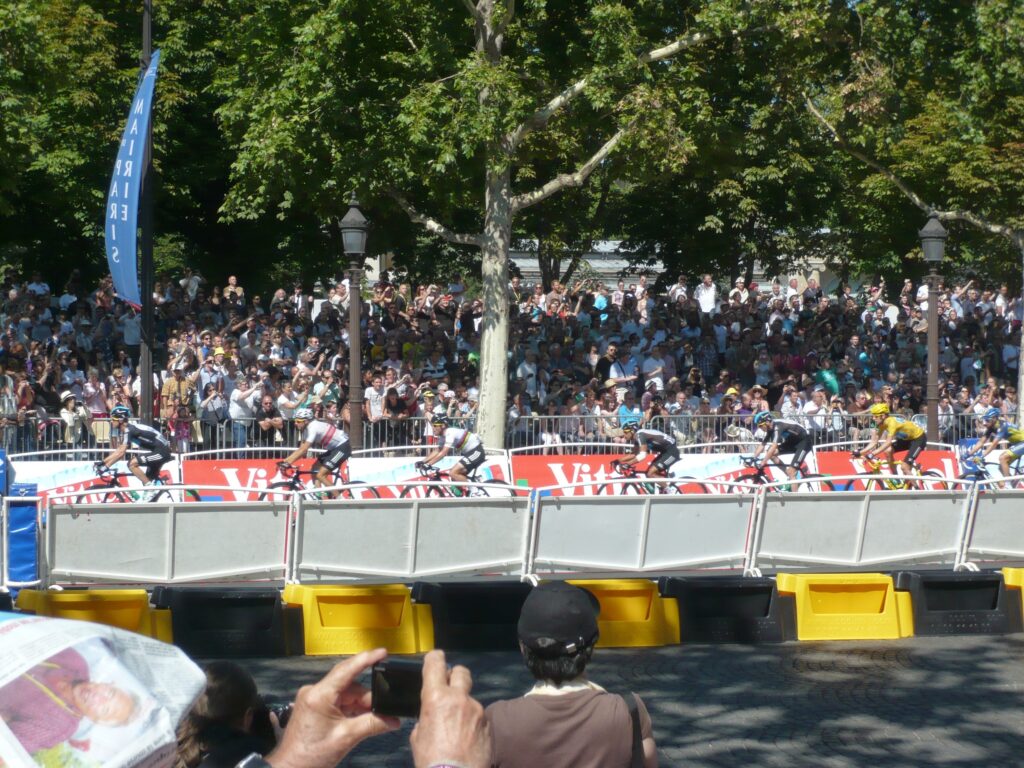I’ve been lucky enough to witness Cavendish – the greatest male sprinter of all time – win the greatest sprint finish – Stage 21, Champs Elysees – on three occasions. That includes the spine-tingling 2012 win as World Champion – led out by the first British Tour winner, Bradley Wiggins, resplendent in the yellow jersey.
If Hollywood had its way, his career would finish there – arms aloft, freeze frame and fade. But bike racing isn’t Hollywood. The fates have mockingly decreed his Tour de France career will instead end largely unobserved in a hilly final day time trial between Monaco and Nice.

I was going to try and be all journalistic about the second greatest British road cyclist I’ve watched in the last 20 years. But Cav is a passion play, a compulsive figure on a bike that refuses due impartiality.
Much like Nicole Cooke – the greatest British road cyclist of the modern era – his achievements and talent are in defiance of obstacles and received wisdom. His ability to make the impossible possible and then explain every metre of it is impossible to anyone else.
Take his 2011 World Championship win: Great Britain rode a 256km team time trial against the rest of the field only for his lead out man to lose him at the last corner, leaving Cav to use brute determination to win the uphill sprint.
Long before Wiggins became shorthand for British cycling success, it was Cavendish who drew British fans in to the big mens races.
My first memory of Mark Cavendish is a fury in hot pink, on The Mall in London. A stagiare with T-Mobile at the Tour of Britain 2006, he’d come third in the sprint behind World Champion Tom Boonen and was on his way to be interviewed by the BBC.
Even in the years leading up to Wiggins unmatchable glory of 2012, the headlines and focus of ITV’s Tour de France coverage were about Cavendish. It was Cav who was the first big storyline of London 2012 – a rare occasion on which the seemingly improbably remained beyond him.
There’s also something about the way Cav rides a bike that makes him more than just a figure in the crowd.
In the final kilometres it’s that pungnacious crouch over the bike, bristling intent and imposing itself in the line. The head extended high, terrapin-like, surveying the position and opponents, poised for the moment.
Then when the moment comes, the almost imperceptible rolling down of the shoulders, the head coming low between them. The balletic flourish of the handlebar roll as in one continuous movement he rises out of the saddle and accelerates out of the wheel into his final effort.
I’ve watched this up close on the cobbles in Paris. The telly lies – the bike bucks like a bee stung bronco under him, but he floats in a parallel plane.
Gosh, I’m going to miss spending my Julys with that gobby little Manx kid.
